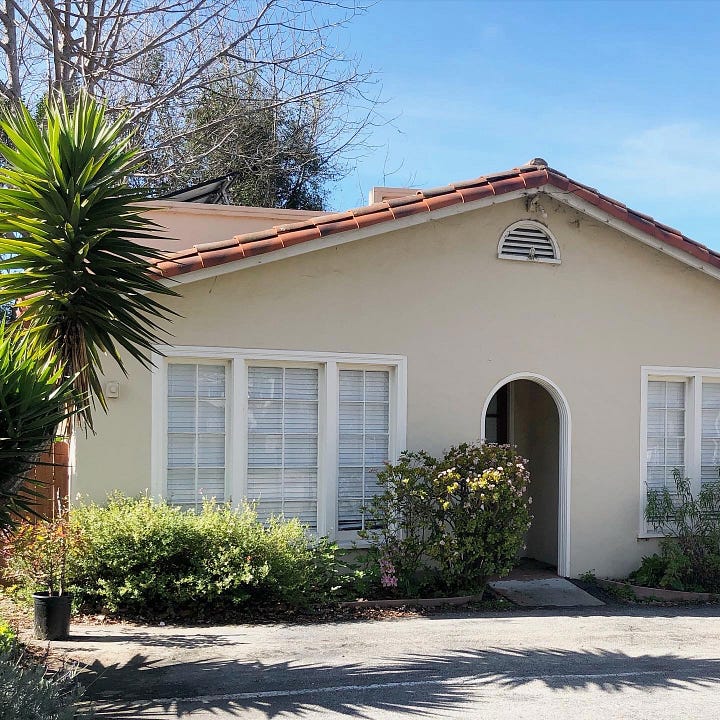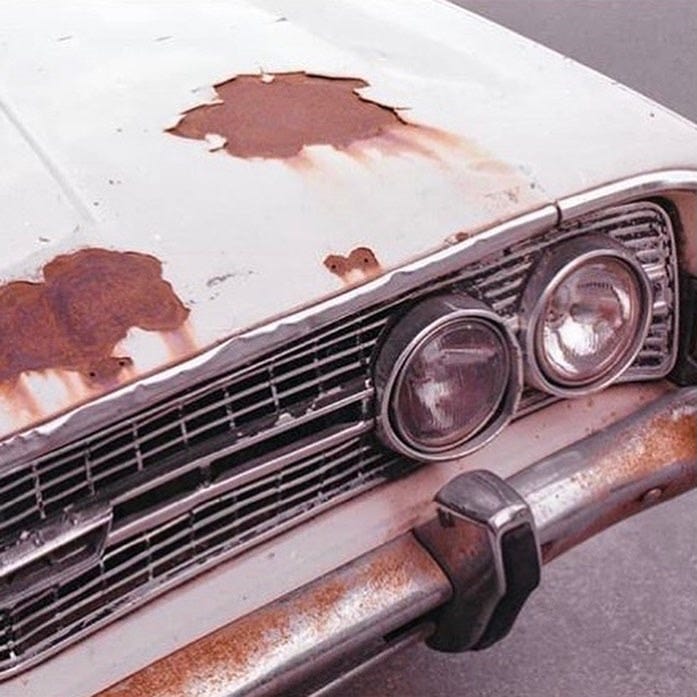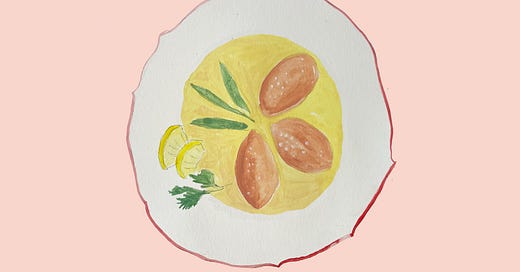In the Beachtown Bohemia of my youth, there is one restaurant I remember with exaltation. It was called The Salmon Poacher. Extraordinary cuisine notwithstanding, it was unique from other restaurants in Santa Cruz in that it occupied a former single-family home. Inside, crisp white tablecloth seating arrangements were the canvas for a short-lived and celebrated Franco-Californian restaurant. At The Salmon Poacher you were seated in a room that had been either the living room, dining room, sun porch, or a bedroom. The hardwood-floor bedrooms, some with fireplaces, created a particularly cozy domestic atmosphere where just two tables might be squeezed. I was enchanted with this idea: that a house could morph into a restaurant.


The menu at The Salmon Poacher was sophisticated and I was nearly always the only child in the restaurant. I would order the salmon quenelle, rather the size and consistency of warm gefilte fish (sans gelatin) and served with a creamy bechamel sauce like a little cloud that sat on your tongue singing lullabies. I found this dish comforting. We’d see people we knew at neighboring tables, and the adults would small-talk about this season’s Shakespeare Santa Cruz plays, whose manuscript was a chore to proofread, and who had recently been out diving for mussels up the coast. The beachtown bohemian adults at the table laughed a little too loudly, which made me nervous. Despite being only eight years old, I was keenly aware that these adults were drinking a lot of wine; their words came out sloppy like a shirt buttoned one button-off the ladder. I would bring along a Hello Kitty sketchbook and colored pencils to occupy myself. Amidst this milieu of high-Seventies bohemianism, I knew that I was capable. I knew I was capable of steering our little Honda Civic from the passenger seat if I needed to. (Only-children in the passenger seat have the choice of either observing the driver or daydreaming out the window. I belonged to the first camp.) Driving looked simple enough: just press on the clutch, then shift over and down.


Indeed, the impending swervy ride home made me a little nauseous. But it didn’t plague me quite as much as the embarrassment of our Honda’s hood, which was covered in corroded rust spots like blisters that bubbled and left holes straight through to its hot little engine -- the inevitable result of parking one's car outside brining in ocean spray for a decade. Beachtown bohemians didn’t use their garages, you see. The garage was where they stored their surfeit of books and Kodak slide carousels from adventures abroad (communicating a different, yet equally potent sort of vanity to that of a polished car.) The rust cavities on the hood of our Honda rendered it maimed and unpresentable at my elementary school’s drop off. I wished I were one of the little girls who emerged at the school’s curb from a tidy station wagon with shiny chrome hubcaps and Top 40 on the radio. There is a fine line, my eight-year-old-self noted, between the bohemian and the ruined. Our Honda had veered into ruinous territory. It was precisely this self-consciousness and desire to be just a little more square that cast the only shadow upon the true glory of The Salmon Poacher’s heavenly quenelle. And their pillows of gossamer in my mouth.
Beachtown Bohemia is paywall free. You can support me by liking this post (heart button at the top) and sharing it with anyone you feel would appreciate it.






Hugs to 8-year-old Olivia & I'm so glad she never had to take the wheel!
Love your writing - I feel nostalgic for the 1970's of my Southern California youth reading your essays - a slightly different geography but many of the flashes of memory seem so close to yours. Thanks for sharing